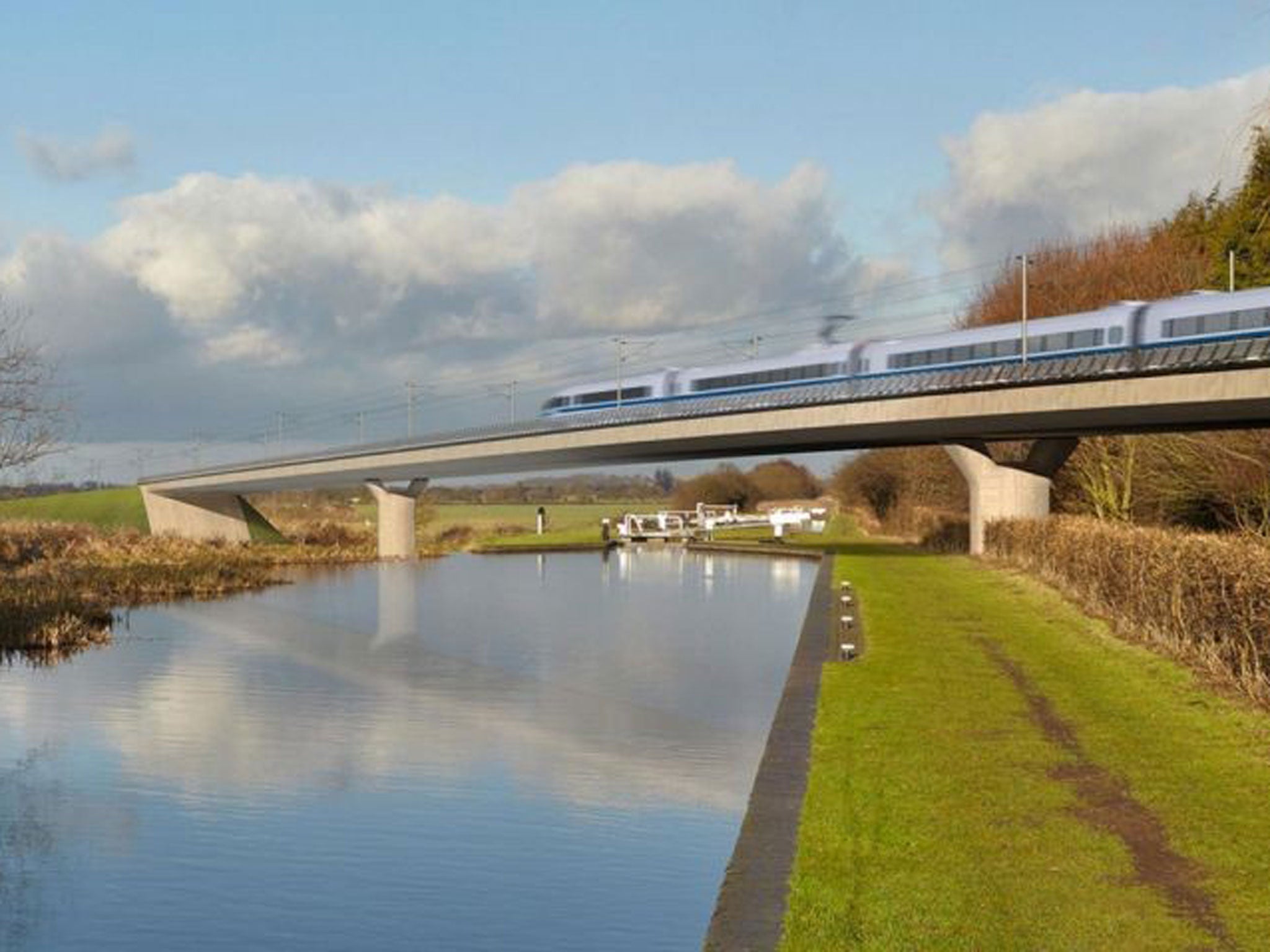HS2: a new railway to drag Britain from the 19th century to the 21st. But are the specifics right?
This morning's details from the government will re-balance Britain and shift long-distance traffic from road to rail. Good. Now rename it Y-Speed 2 and answer critics


Your support helps us to tell the story
From reproductive rights to climate change to Big Tech, The Independent is on the ground when the story is developing. Whether it's investigating the financials of Elon Musk's pro-Trump PAC or producing our latest documentary, 'The A Word', which shines a light on the American women fighting for reproductive rights, we know how important it is to parse out the facts from the messaging.
At such a critical moment in US history, we need reporters on the ground. Your donation allows us to keep sending journalists to speak to both sides of the story.
The Independent is trusted by Americans across the entire political spectrum. And unlike many other quality news outlets, we choose not to lock Americans out of our reporting and analysis with paywalls. We believe quality journalism should be available to everyone, paid for by those who can afford it.
Your support makes all the difference.The key to a successful infrastructure project is to enthuse more voters than you upset. Conversely, an excellent way to annoy voters is to launch an expensive, disruptive programme which they will bankroll – but which brings them no obvious direct benefit.
A new railway is the right way to drag Britain from the 19th-century to the 21st. The line will re-balance Britain, closing the North-South divide and shifting long-distance traffic from road to rail. But every voter, whether or not they are likely to use the new line, is likely to have a view on how the present plan could be improved.
The £33bn High-Speed 2 project can now be re-named Y-Speed 2, because of the way the line will fork from a junction outside Birmingham to serve Yorkshire and the North-West.
Location, location, location
The main flaw is the most important component, from a passenger perspective: where the stations are - and where they are not. The East Midlands already has a Parkway station in the middle of nowhere, inconvenient even for the airport it was intended to serve. The region is now going to get an East Midlands Hub – a compromise station couple of miles north, which appears designed to exasperate equally the citizens of Derby and Nottingham by being difficult to reach from either city.
Better to slide the fork of the Y 10 miles north-west to Lichfield and run the line along the Trent Valley, alongside the existing tracks, to Derby. It would be cheaper, requiring less new track, and provide the lifeline that Derby needs – a crucible for the Industrial Revolution and a proud railway town now in desperate need of a place on the nation’s new main line.
The citizens of Lichfield may be furious about that alignment, but the present plan has plenty to anger them already. The line swerves around the east of the city to join the existing West Coast Main Line, without pausing for breath. Or passengers.
The argument used to minimise the number of new stations is that stopping en route erodes the time saving. The absurd implication is that every train needs to stop at every stop.
If just one of the 18 trains an hour were to stop at Lichfield, it would halve the current 97-minute journey to London – and make the project more politically acceptable. The French realised this when developing the TGV network: the high-speed lines are punctuated by country stations that placate the people and politicians
Talking of politicans: Patrick McLoughlin deserves praise, along with his last Labour predecessor, Lord Adonis, for unwavering commitment to HS2. But the Transport Secretary should admonish the civil servants who put together the new publicity leaflet for the line.
Pain relief
Just two specific examples of the benefits are cited: “It will make it easier for a Birmingham firm to hire a Leeds solicitor. And for a Manchester web designer to pitch for contracts in London or Amsterdam.”
Putting aside the obvious – there being plenty of excellent lawyers in the West Midlands, and that anyone needing to get from Manchester to Amsterdam will fly – these feeble examples diminish the way that the line will transform Britain’s economic geography and enrich our lives.
More pragmatically, HS2 even promises some relief for the other infrastructure headache, more air capacity for South East England. With a journey time of under an hour to Manchester airport, the main aviation hub outside London will be quicker to reach from the West End than Stansted in Essex. And since it is half-an-hour closer to the US than is Heathrow, with plenty of spare capacity, Manchester could become a proper transatlantic gateway. Even frequent flyers can feel enthused about HS2.
Join our commenting forum
Join thought-provoking conversations, follow other Independent readers and see their replies
Comments